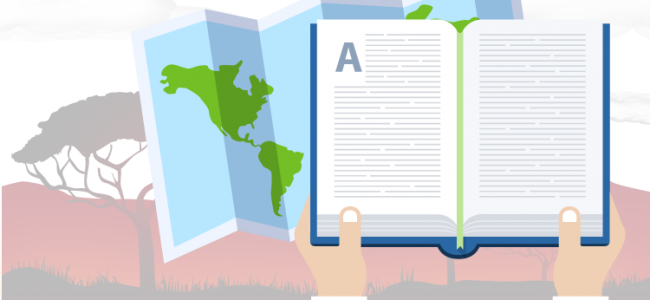African Languages and Short History of Afrikaans
Afrikaans is one of the notable languages on the African continent, particularly spoken by Afrikaners in South Africa and Namibia, including others in Zimbabwe and Botswana. Here is a short history of Afrikaans.
It is richly formed from elements of German, Malay, Portuguese, Bantu and Khoisa languages but is heavily based on Dutch as well.
The History of Afrikaans
There are many speculations about the history of Afrikaans, however, it is believed that the earliest Dutch, who occupied the ancient South Africa in the early 17th century, would have settled down in the southern part of Africa with some form of their culture adopted by the locals.
A fraction of the Dutch culture that was adopted was Afrikaans which began to flourish with the establishment of Apartheid in the pre-independent South Africa. This is not to say that Afrikaans is purely Dutch, but that over 90% of Afrikaans vocabulary is rooted in Dutch words.
From the 18th to early 20th century, Afrikaans started to take shape from the European Dutch to become a distinct language tapping from the beauty of languages such as Malay and Portuguese among others. Despite being regarded in proper Dutch as an uncivilized or incorrect form of Dutch, socio-linguists and researchers have regarded Afrikaans as a language with more regular grammar and spelling when compared with the European Dutch.
This concludes our little history of Afrikaans. If you’d like to know more about it, see the Wikipedia page.
The Dialects of Afrikaans
There are three different but major dialects of Afrikaans. They are Eastern Border Afrikaans, Orange River Afrikaans and Cape Afrikaans.
The Eastern Boarder Afrikaans generated from the settlers who migrated to the Natal in the East of South Africa, from South African’s Cape Peninsula.
Also called Afrikaans of the Orange River (oranjerivierafrikaans), this dialect was created from the influence of the languages spoken in Griqualand and Namakwaland, notably the Khoi languages.
Cape Afrikaans or Kaapse Afrikaan developed from Malay and loose Portuguese, spoken by the Malay slaves in the Cape Peninsula.
Selected Afrikaans Sentences, Phrases and Words
Here are selected Afrikaans sentences and phrases:
- Wat is jou naam? (What is your name?)
- Ek is life vir jour (I love you)
- ‘N Bietjie (A bit)
- Piesang (Banana)
- Gogga (Insect)
If you need to translate documents from and into Afrikaans, get in touch, we translate from and into any language.







